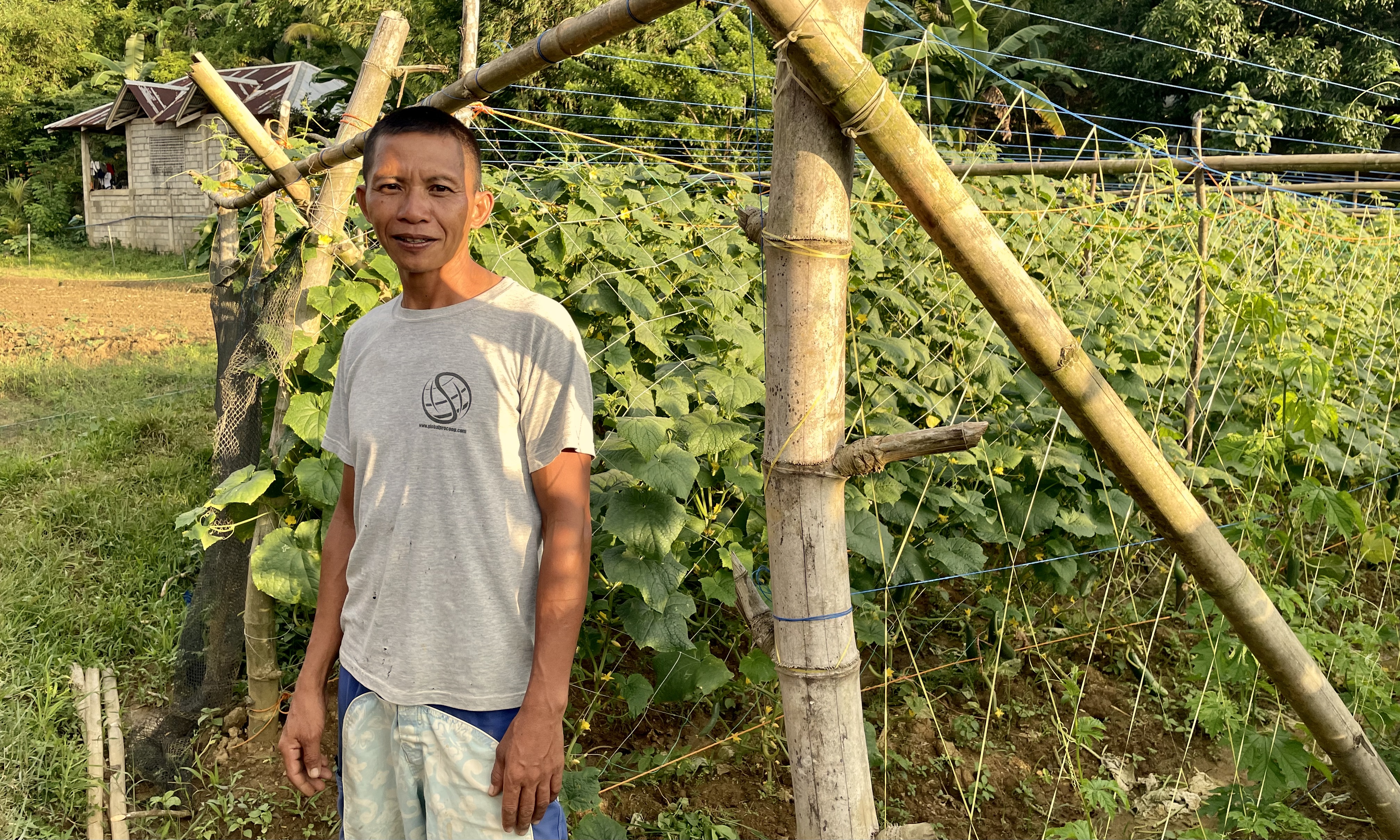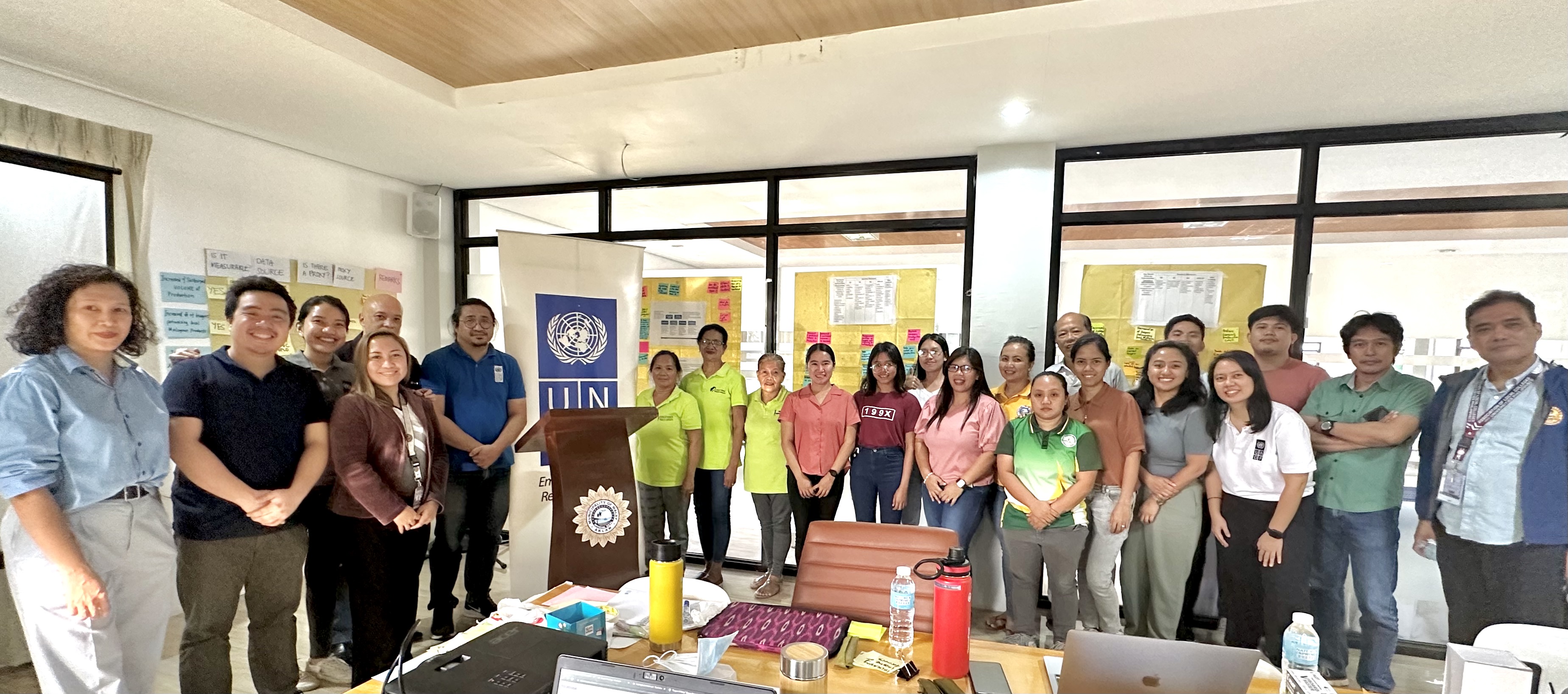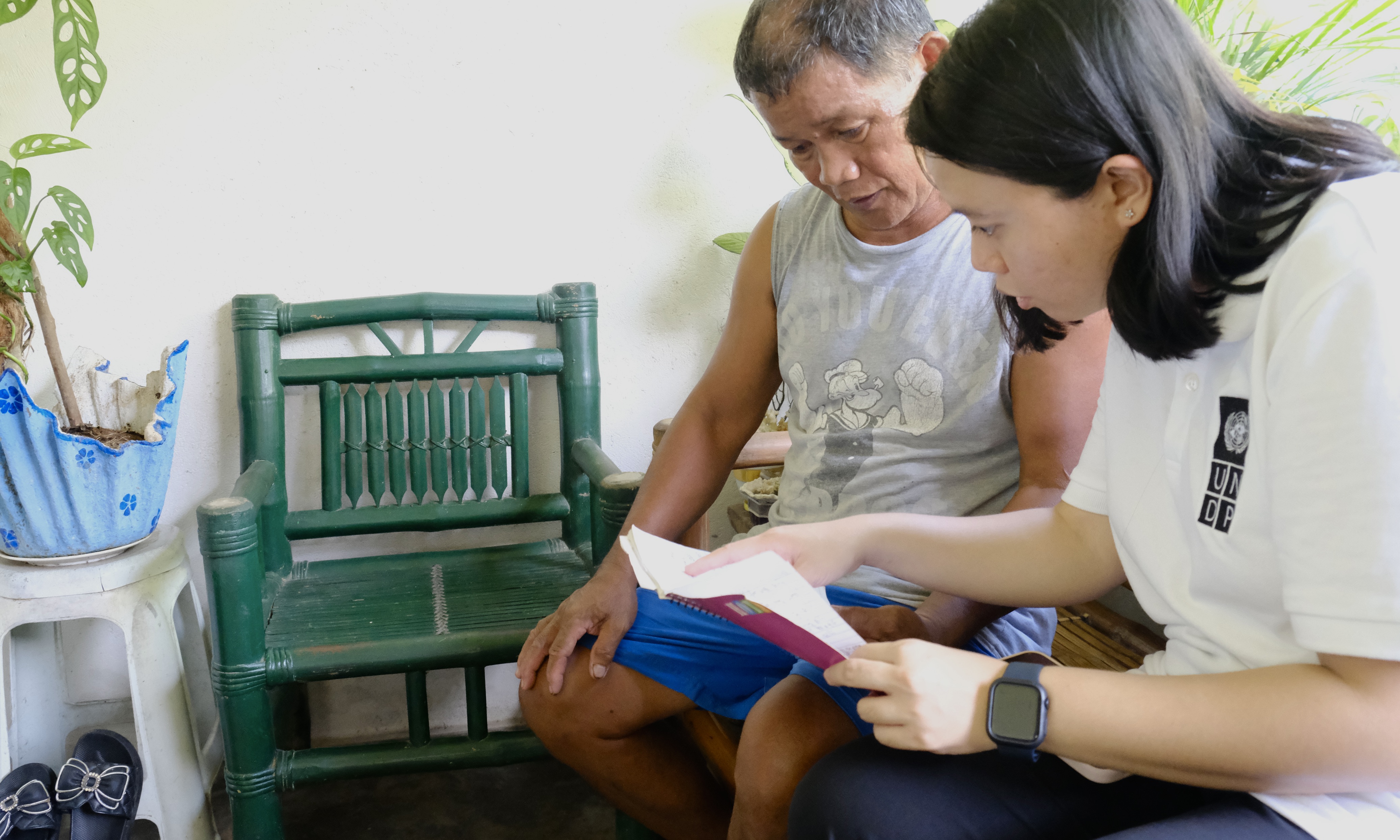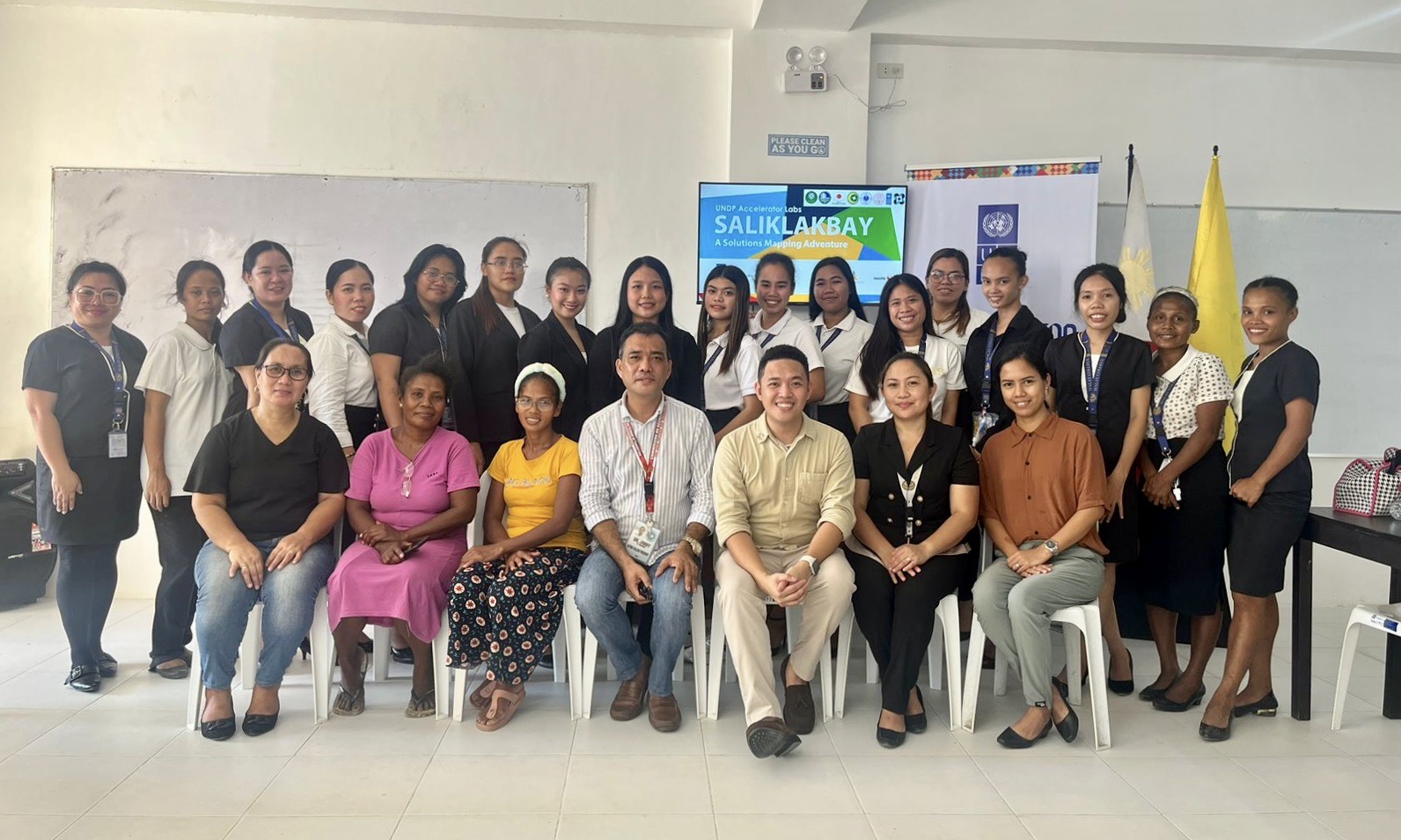by Sharleene Kay Alayan, UNDP Philippines Accelerator Lab (ALab)
Bringing a portfolio to life: The Malay Food Systems Innovation journey
October 20, 2023

In 2022, the stakeholders from Malay, Aklan envisioned a strengthened and inclusive food system. With the municipality being the gateway to the world-renowned Boracay Island, the local development's prime priority has been centered on tourism. However, the stakeholders have learned from the previous disruptions — the 2018 Boracay Island closure, rehabilitation, and the 2020 COVID-19 pandemic — that strengthening their local capacities and converging for development are crucial to being more resilient moving forward. This was the mindset when the UNDP Philippines Accelerator Lab (ALab PH) team facilitated a co-design of the Malay Food Systems Innovation portfolio to support their vision. Through this portfolio, the stakeholders hope to foster convergent governance, vibrant agriculture, inclusive market, and social responsibility.
Since then, the Municipal Government of Malay has enacted Executive Order No. 13, Series of 2023 to establish the Multi-Stakeholder Group (MSG) for the Malay Food Systems Innovation initiative, with sub-committees on production, linkages, promotion, and research and development. They have also onboarded the MSG Secretariat and dedicated staff to coordinate across the different sub-committees' respective activities. This includes supporting cross-cutting tasks such as monitoring of developments within various components of the portfolio , while facilitating linkages between each. Under the guidance of the MSG platform and in collaboration with UNDP ALab PH, a series of workshops were conducted to formulate the initiative's Theory of Change, success indicators, and monitoring mechanisms alongside the moonshot goal of capturing a portion of Boracay’s demand for the Malay food producers.

The Malay Food Systems Multi-Stakeholder Group (MSG)
Embracing the journey of testing a model and learning along the way
From January to June 2023, the Municipal Government of Malay embarked on its first experiment sprint to use select market demand data to program and plan the production of local food producers. The experiment is anchored on the goal of making the food value chain more inclusive and sustainable by boosting local food production to ensure that local farmers will have increased income while keeping markets engaged. Participating farmers and local market retailers in the talipapa” agreed to pilot six (6) crops to test whether mainland Malay can produce food for the markets catering to Boracay Island. A dedicated staff for marketing was also hired to facilitate discussion between the market retailers and the agriculture staff who manage the production aspect with the participating farmers.
To foster data governance among the partners, UNDP ALab PH initiated training select technical staff on basic data analysis and reporting. Additionally, a prototype was built to digitalize the data capturing of agricultural products that enter the island for policy and programming of the municipality supported with ICT equipment donation.

In the pause and reflect session with the MSG, participating farmers recorded net earnings ranging from PHP 3,000 to PHP 20,000 depending on the crops produced, sold to the market, and prices given during the period. A highlight of these reflections are the insights shared by the farmers on improvements for the next phase of the experiments such as technical capacities on pest management and more market participants so they can supply more. While there were challenges, the farmers remained hopeful and looked forward to the next iteration of the experiment. Inspired by what the sprint has demonstrated and the expressed interest for local products, they are keen to expand the initiative in terms of participating farmers, diverse commodities, and capacities to organize.
Participating farmers recorded net earnings ranging from PHP 3,000 to PHP 20,000 depending on the crops produced sold to the market.
A glimpse into what’s next for Malay
The strategies underway to scale up the initiative include engaging bigger markets such as hotels and restaurants to match market demand with the local smallholder farmers’ supply, as well as recruiting more farmers and formalizing them into a cooperative moving forward. Preparations are also being undertaken to conduct a food demand survey and update the local investments and incentive code to attract the private sector’s participation as a market for the farmers’ produce. UNDP ALab PH complemented these with a private sector dialogue to explore different collaboration entry points towards designing financing models that can attract impact investments for sustainable development in Malay.
Lastly, a preliminary SalikLakbay Solutions Mapping activity was conducted in partnership with Malay College and its extension office to scope grassroots innovations in the municipality in line with the Malay MSG’s research and development. These include scoping indigenous Ati group’s recipes and endemic ingredients that can feed into the demand survey of niche local products.

SalikLakbay Solutions Mapping activity
While the portfolio serves as the starting point to tackle multiple but equally vital components, it is the stakeholders on the ground who actually move the pieces and enable a space for continuous and collective learning to take place. The Municipal Government of Malay, through its established MSG, stewards the project and opens itself to collaborations, and alongside, UNDP is steadfast in providing complementary and technical support.
___
Interested parties may contact acceleratorlab.ph@undp.org for further queries. A knowledge product will also be released for further details on this journey of activating the food systems to accelerate the SDGs.

 Locations
Locations



